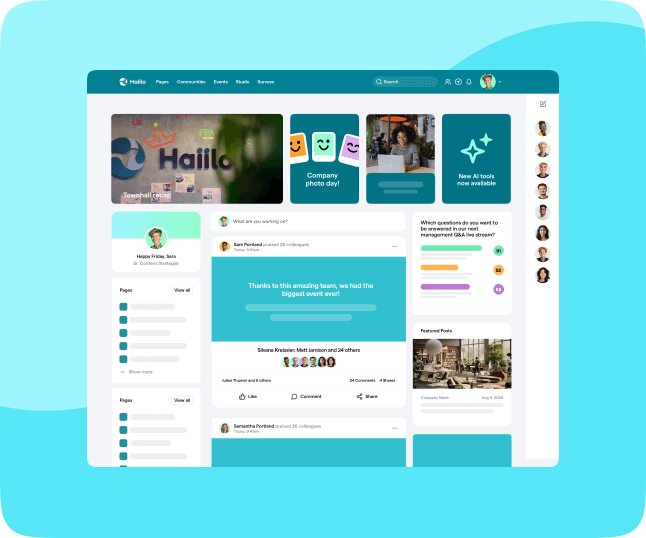Talent acquisition vs. Recruitment? Is there a difference? What is the difference? 3 questions that even HR professionals ask themselves sometimes.
Talent Acquisition vs. Recruitment: The Main Difference
The biggest difference between recruitment and talent acquisition us that recruitment is reactive and momentary, talent acquisition is proactive and continuous.
Another significant difference when we talk about recruitment vs. talent acquisition is in the mindset of the company and HR. Are you looking for people to fill current vacancies, or are you seeking to implement a larger strategy to increase your growth and innovation?
💡 Check out Drivers of Employee Engagement to Start Implementing Today.
Talent Acquisition vs. Recruitment: Infographic
The best way to explain the biggest and main difference between talent acquisition and recruitment is through the following infographic made by Phil Exeq.

The best way to explain the biggest and main difference between talent acquisition and recruitment is through the following infographic
When Should You Recruit?
Recruitment is about filling immediate vacancies. When you recruit, you are likely to already know quite clearly what and who you’re looking for. A position is either left vacant or created, there is already a fairly well-established list of tasks the new employee will be performing, as well as a clear idea of the skill and knowledge requirements for the new employee.
When recruiting, the focus tends to be on the current needs of the company. A recruitment process raises the questions of “can this person perform the job we want them to” and “who would best perform the tasks we want to see performed in this job position”.
There is no need to scrap recruitment and only focus on talent acquisition. Instead, recruitment and talent acquisition should be separate processes with different goals.
When Do You Need Talent Acquisition?
Talent acquisition is an ongoing process that seeks to bring the company to the awareness of the right talent, attract the best employees who will be motivated and engaged.
Talent acquisition is a long-term human resources strategy linked with the overall growth strategy of the company. In talent acquisition, the focus should be more on answering the questions of “how do we attract the best talent” and “what are we able to offer to the best talent”.
Consider a talent acquisition strategy especially…
1. When You Need Niche Talent
A talent acquisition strategy is often needed if the company operates in a niche market and requires people with specific skill sets that may be difficult to come across. These industries and their corresponding job posts deal more and more with technology, such as cybersecurity, cloud infrastructure, software development, AI and Virtual Reality.
2. When You Are Looking for Growth
All companies looking for growth benefit from having a talent acquisition strategy in place. Companies now look for new ideas, skills and levels of employee engagement to the company.
3. When People Don’t Know You Yet
If you are competing of the best talent, getting job applications your way can be difficult if potential employees don’t know who you are and can’t figure it out easily by visiting your website or social media channels. If this is the case, employer branding is an especially important part of your talent acquisition strategy.
See also: Is Your Employer Brand True?
It is important in-house and external recruiters and HR specialists understand and agree with your employer brand. Talent acquisition is simply easier and more straightforward, when people know about your company and view it in a positive light so that when they are approached by your company, you can fast forward to the details.
4. When You Aren’t Sure What You Need
Recruitment is about filling an existing or created vacancy, but with talent acquisition, you may be sourcing for talent without being sure of what their specific task on the job would be. It is more important to find people and let them do their own best work than to tie them into a specific task, to be performed in a specific way.
There are many roads to success and as long as the people you hire understand and share your values, do exceptional work and bring their talent and vision in-house, it is more important that they see and support the big picture than it is to make sure they know how to use a specific program or have exactly this-and-that many years of experience in performing a specific task.






